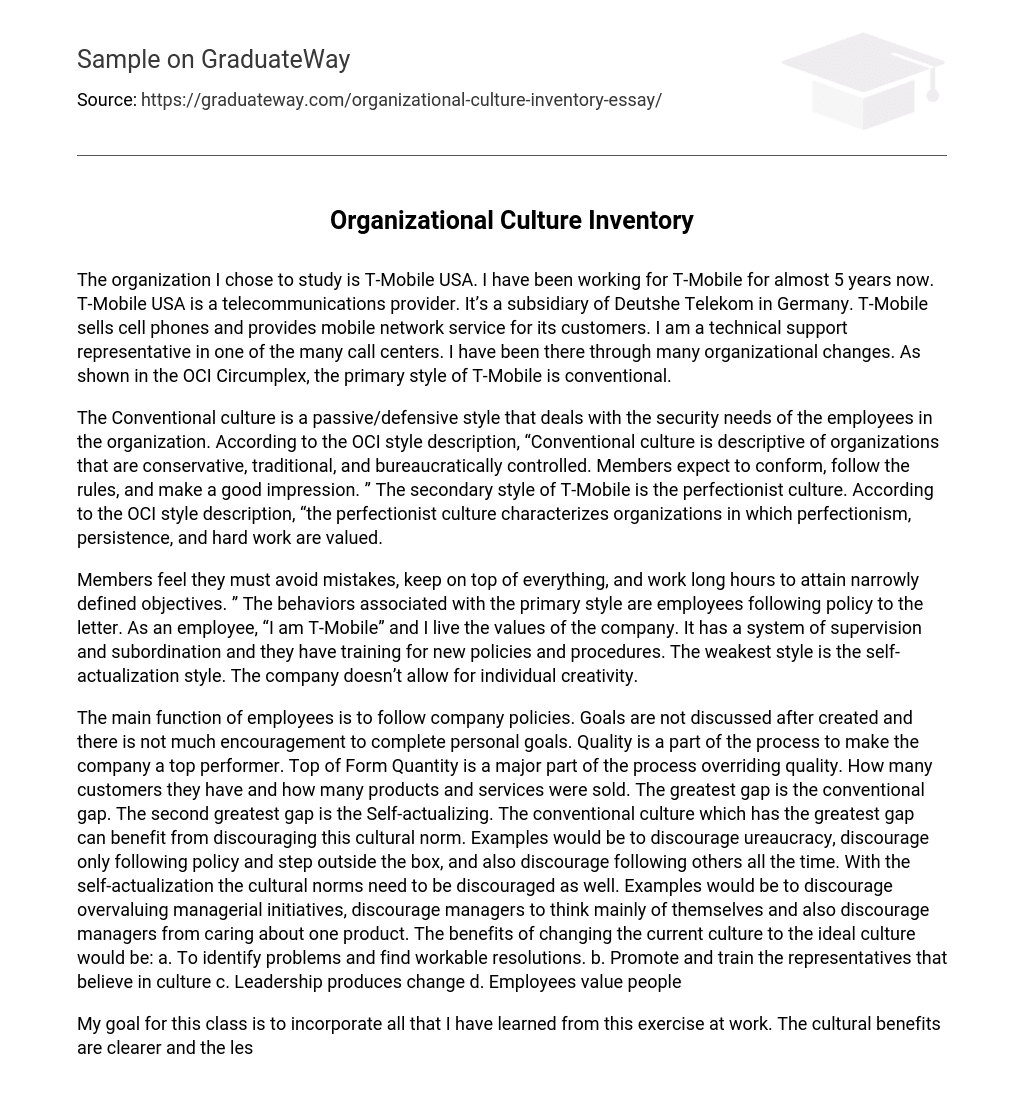The organization I am studying is T-Mobile USA. I have been working at T-Mobile for almost five years. T-Mobile USA is a telecommunications provider and operates as a subsidiary of Deutshe Telekom, which is based in Germany. The main focus of T-Mobile is selling cell phones and providing mobile network services to its customers. Currently, I work as a technical support representative in one of their many call centers. Throughout my time here, I have seen several changes within the company. According to the OCI Circumplex, T-Mobile’s predominant style can be described as conventional.
The Conventional culture in an organization focuses on employee security and is described as conservative, traditional, and bureaucratically controlled. Members are expected to conform, follow rules, and make a good impression. Another style at T-Mobile is the perfectionist culture, which values perfectionism, persistence, and hard work.
Members of the organization believe in avoiding errors, maintaining control over responsibilities, and putting in extended hours to achieve specific goals. The main style at T-Mobile is characterized by employees strictly adhering to company policies. As an employee, I wholeheartedly embrace T-Mobile’s identity and values. The company has a hierarchical structure and offers training for new protocols. However, the self-actualization style is not favored as the company does not encourage individual creativity.
The main duty of employees is to comply with company policies. Discussion and promotion of goals are lacking. Quality is crucial for the company’s success, but it often takes a backseat to quantity. The primary discrepancy lies in the traditional culture, which can benefit from discouraging norms such as bureaucracy, strict policy adherence, lack of innovation, and excessive reliance on others. Similarly, the self-actualizing culture would benefit from discouraging overvaluing managerial initiatives, self-centered thinking, and excessive focus on a single product. Transitioning from the current culture to the ideal one would result in several benefits including: effective problem identification and resolution, promotion and training of representatives who embrace the culture, facilitating change driven by leadership, and fostering a culture where employees value one another.
My aim in this class is to apply the knowledge gained from this exercise in my work. The advantages in terms of culture are evident, and the lessons are priceless. Numerous problems at T-Mobile can be solved or tackled. By becoming a leader and implementing the principles of a new culture through strategic thinking, the organization can be improved.





